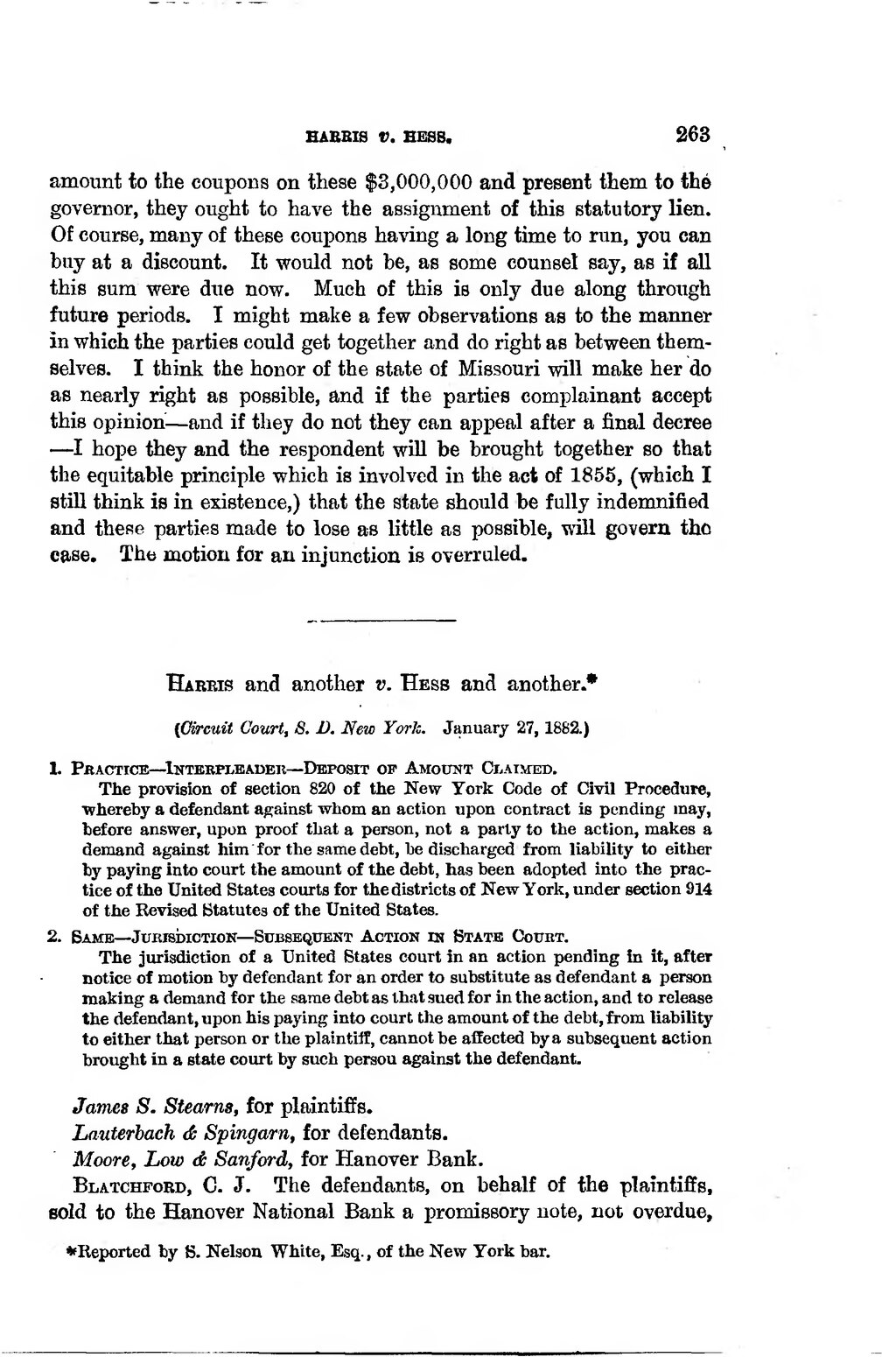EABBIS V. HESS. 263 �amount to the coupons on these $3,000,000 and present them to the governor, they ought to have the assigument of this statutory lien. Of course, many of these coupons having a long time to run, you can buy at a discount. It would not be, as some counsel say, as if all this sum were due now. Much of this is only due along through future periods. I might make a few observations as to the manner in which the parties could get together and do right as between them- selves. I think the honor of the state of Missouri will make her do as nearly right as possible, and if the parties complainant accept this opinion — and if they do not they can appeal after a final decree — I hope they and the respondent will be brought together so that the equitable principle which is involvcd in the act of 1855, (which I still think is in existence,) that the state should be fully indemnified and these parties made to lose as little as possible, will govern tho case. The motion for an injunction is overraled. ���Harris and another v. Hess and another.* �[Circuit Court, S. B. New York. January 27, 1882.) �1. PkACTICE — InTBKPLBADEK — DbPOSIT OP AMOtTNT Cl<AI\rBD. �The provision of sectioa 820 of the New York Code of Civil Procedure, ■whereby a defendant against whom an action upon contract is puuding may, before answer, upon proof that a person, not a party to the action, malies a demand against him for the samedebt, be discharged from liability to either by paying Into court the amount of the debt, has been adopted into the prac- tice olE the United States courts for the districts of New Yorlc, under section 914 of the Revised Btatutes of the United States. �2. Bamb — JuBisbicTioN— Subsequent Action m Statb Court. �The jurisdiction of a United States court in an action pending in it, after notice of motion by defendant for an order to substitute as defendant a person making a demand for the same debt as that sued for in the action, and to release the defendant, upon his paying into court the amount of the debt, from liability to either that person or the plaintili, cannot be affected by a subsequent action brought in a state court by such person against the defendant. �James S. Stearns, for plaintiffs. Lauterbach e Spingarn, for defendants. Moore, Low e Sanford, for Hanover Bank. �Blatchford, C. 3. The defendants, on behalf of the plaintiffs, Bold to the Hanover National Bank a promissory note, not overdue, �*Reported by B. Nelson White, Esq. , of the New York bar. ��� �
